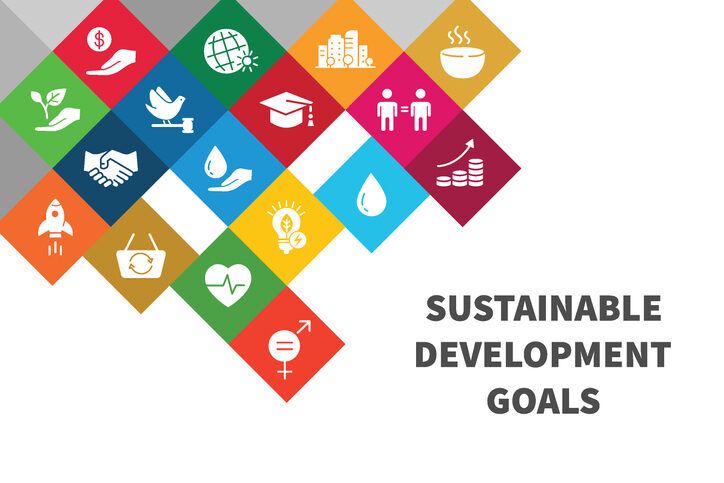Insurance companies have begun to research how they can collectively and systematically contribute to the UN Sustainable Development Goals (SDGs) to seize strategic business opportunities and help achieve the goals.
At an online event, which was organised by the UN Environment Programme Finance Initiative’s (Unep FI) Principles for Sustainable Insurance Initiative (PSI) and Swiss Re, the speakers explained how the insurance sector deals with the goals today and the potential of systematically ‘linking’ the sector to them.
This includes areas such as defining specific insurance SDGs (iSDGs), mapping insurance products to the SDGs, connecting portfolios to the goals and measuring impact.
Christian Mumenthaler, chief executive of Swiss Re, told the audience that the purpose of insurance is resilience, which means that it overlaps with the SDGs.
“That’s why in Davos, for the first time this year, we could get a coalition of the willing, ie several CEOs of the insurance industry, to work with us and try to better understand the links between what we do, our purpose and the SDGs,” he said.
As a medium-term goal, Mumenthaler hoped that all insurance business lines will have gained more clarity about the links to the SDGs, which could then lead to increasing the contribution of the insurance industry to the goals.
Reto Schnarwiler, head of group sustainability at Swiss Re, said that the work on the SDGs signalled that the industry is moving from its business of downside protection to providing impact.
Mapping SDGs to insurance products
The speakers at the online event presented how they have mapped their products to the SDGs to understand their current respective contribution.
Renate Bleich, head of sustainability at Munich Re, commented: “We have taken some steps, but we are far from being at the end, and far from being where we want to get.”
In terms of SDGs that are material to the business, Munich Re was able to map its products against SDG 7 (affordable and clean energy) and SDG 1 (no poverty); for example by identifying partnerships that tackle impact from draughts and floods.
While Bleich said that the SDGs don’t form part of the firm’s core strategy, she believed that the iSDGs could be of great value to create standards and transparency by setting KPIs and targets.
Mike Mitchell, head property and specialty underwriting reinsurance at Swiss Re, explained that the firm has advanced its SDG work, moving beyond qualitative work and building quantitative evaluation methodologies for their underwriting.
Gaps of insurance products
But the speakers also pointed to gaps in insurance products when addressing traditionally underserved segments of the population.
Veronica Scotti, chairperson, public sector solutions at Swiss Re, explained that one of the challenges to clarifying the link between the SDGs and insurance products was to provide access and affordability.
As a solution, Scotti and Alison Martin, chief executive Emea and bank distribution at Zurich Insurance Group, highlighted the opportunity of digitalisation to access underserved markets, such as poorer populations and gig economies.
Garance Wattez-Richard, chief executive of Axa emerging customers at Axa Group, pointed also to the importance of partnerships and distribution networks to reach out to a large number of people in emerging countries, including through mobile banking and microfinance institutions.
Insurance companies have actively supported sustainability initiatives, for example as part of the Task Force on Climate-related Financial Disclosures (TCFD), and the event marked another step, which seeks to raise the sustainability agenda within insurance.
Butch Bacani, programme leader at Unep FI PSI, concluded that pursuing the SDGs represents opportunities while also staving off risks for the insurance industry.
“Through insurance SDGs, we can seize that opportunity [of doing sustainable business] and also help break the tragedy on the horizon, associated with long-term sustainability issues,” he said.







